Jemima Moody, 2, entered this world with an extra chromosome—and extra love.
It’s not every little girl who gets to share her life with nine older siblings who adore her and dote on her.
As Jemima sat on the floor in her family’s Middleville, Michigan, home, her sisters, Eliza, 8, and Amelia, 15, blew bubbles, read to her and bounced her.
She smiles at these familiar faces. They’re full of warmth and love. Her siblings, who have all performed in plays and musicals, play piano with her, sing to her and dance with her.
Jemima, diagnosed with trisomy 18, is fortunate for more than having a full cast of siblings rooting for her.
She’s lucky to be on this stage at all.
Most infants born with trisomy 18, which Spectrum Health Helen DeVos Children’s Hospital doctors discovered in Jemima three days after her birth, never see their first birthday.
“The doctors were very kind, but not very hopeful for her,” said Jemima’s mom, Amy Moody. “We went home on hospice with palliative care. We were elated in a couple of months when she was able to graduate from hospice. She was still on full-time oxygen, but she wasn’t getting worse. She had a few surgeries to pull her jaw forward and open her airway, which made a big difference for her.”
Jemima is a miracle. There’s no other way to put it. She has overcome so many odds already. …With the support of her family and care team, she will beat all odds.
Amy and her husband, Alan, had birthed their other nine children at home, with a midwife. But just four months into her pregnancy with Jemima, Amy knew something could be off.
“She just wasn’t gaining weight at four to five months,” Amy said. “Her head was small. Our midwife went with me to Spectrum Health for an assessment (on November 5), when I was past my Oct. 27 due date. The ultrasound showed excessive amniotic fluid.”
Doctors decided to induce labor.
A frightful beginning
“There was no panic,” she said. “It was a pretty easy delivery. But it was very different for me to be in a hospital. She was born in the middle of the night. Everything was initially pretty good, but they had to help with oxygen.”
Amy was able to hold her baby, but Jemima wouldn’t nurse.
“That was new to me,” Amy said. “She didn’t seem to have the strength or ability. It was a struggle.”
More alarmingly, Baby Jemima’s oxygen and blood sugar levels continued to drop. Less than 24 hours after she entered the world, doctors whisked her away to the neonatal intensive care unit. An echocardiogram revealed a heart defect.
A chromosome test followed and revealed the cause of Baby Jemima’s stress—trisomy 18. She carried an extra chromosome that compromised her ability to live.
“Of course it was very devastating,” Amy said. “It was a surprise because I thought she looked healthy. I don’t know if it was a degree of denial. She’s my Godly child. I was very hopeful the entire time.”
The family may have been hopeful, but the prognosis was not. Doctors couldn’t promise anything—not a day, not a week, not a month and certainly not a lifetime.
The other nine Moody children, ages 6 to 26 at the time, visited Jemima in the NICU.
“The air was very heavy,” Amy said. “We took a family picture because we didn’t know if we would all be together again.”
After two weeks in the NICU, Jemima went to her family’s home under hospice care. Family members took turns putting a tube down Jemima’s throat and into her stomach to feed her.
Baby Jemima underwent multiple surgeries during her first few months of life. As she grew, so did Amy’s knowledge of her baby’s condition.
“She has the mosaic version of trisomy 18 and doctors used the word ‘wild card,’” Amy said. “It was my understanding that it’s a little gentler than full trisomy 18, which means it’s not in all of her cells. They just don’t know how many cells and how she’s affected. People directed me to a Facebook page for mosaic 18. I began to see survivors, teenagers, that were doing quite well. That gave me a lot of dreams and hope for her.”
Defying the odds
Lesley Reid, MD, a Spectrum Health Medical Group pediatrician, said trisomy 18, also known as Edwards syndrome, disrupts the normal pattern of fetal development in utero.
“This can be life-threatening and can result in still birth,” Dr. Reid said. “Of those babies carried to term, all will have some degree of birth defects, for example, organ defects, growth deficiency and intellectual disability. There are three types of trisomy 18. Jemima has a less severe type called trisomy 18 mosaicism.”
Dr. Reid said trisomy 18 affects only 1 in about 5,500 live births and that about half of affected infants die within the first two weeks of life. Only 5 to 10 percent survive the first year.
“Jemima is a miracle,” Dr. Reid said. “There’s no other way to put it. She has overcome so many odds already. She has a few more hurdles to overcome, including weight gain. With the support of her family and care team, she will beat all odds.”
Despite developmental delays and feeding issues, Dr. Reid said Jemima is progressing well.
“When I first met Jemima, the family was celebrating every milestone—one week of life, two weeks, one month, two months and on and on,” Dr. Reid said. “She celebrated her second birthday late last year. Needless to say, the family was eating a lot of cake.”
Although Jemima still has a feeding tube in place, she is able to feed herself, too. After a vigorous bubble-blowing and bead-playing session, Amelia placed Jemima in a high chair and tied a bib around her baby sister’s neck while Eliza pushed crackers toward the infant.
Jemima picked up a cracker and took a large bite.
“She’s always happy in every situation,” Amelia said. “She’s not easily upset. I love how strong she is. She makes me very thankful for what I’m able to do because I don’t know if she’ll ever be able to do it. Every little thing for her is a big thing.”
Amelia hopes her baby sister someday follows in the family’s musical and theater footsteps. Jemima sat on her lap while Amelia played “Praise the King” on the family’s grand piano. Jemima pounded along on the keyboard.
“Walking, speaking, we don’t realize it’s a gift from God,” Amelia said. “I hope she is able to do many things.”
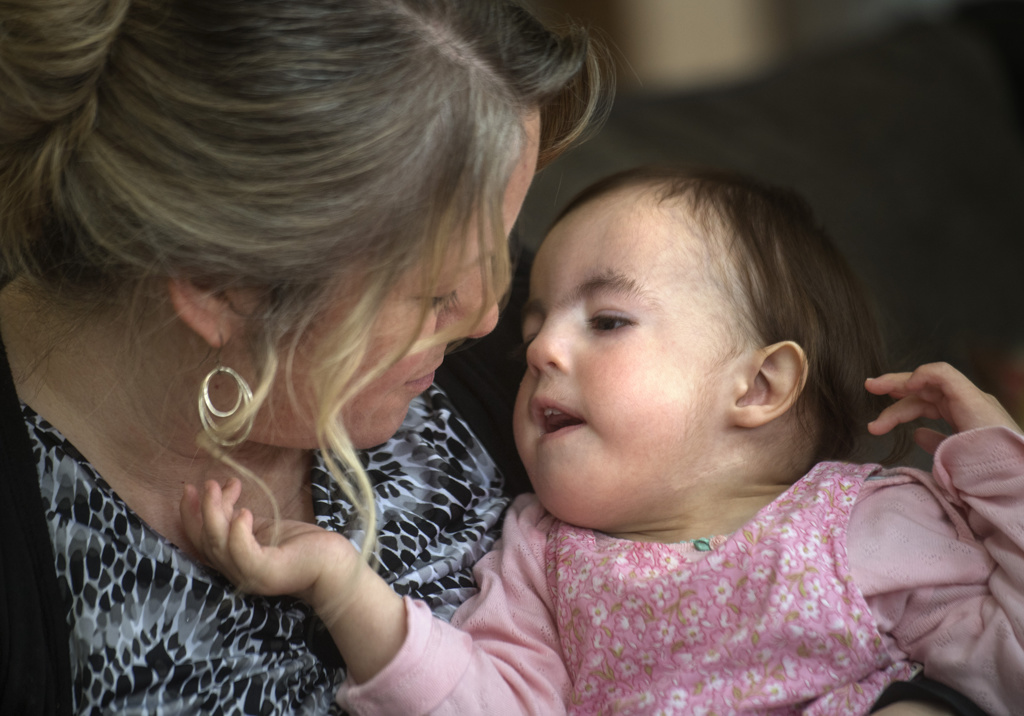
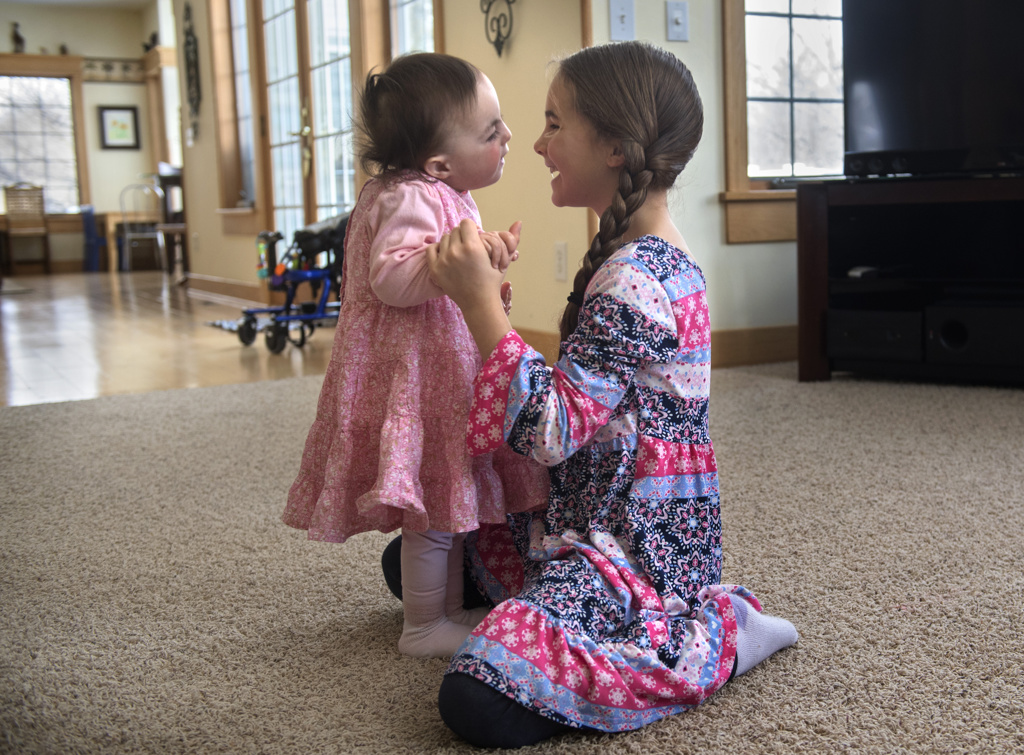
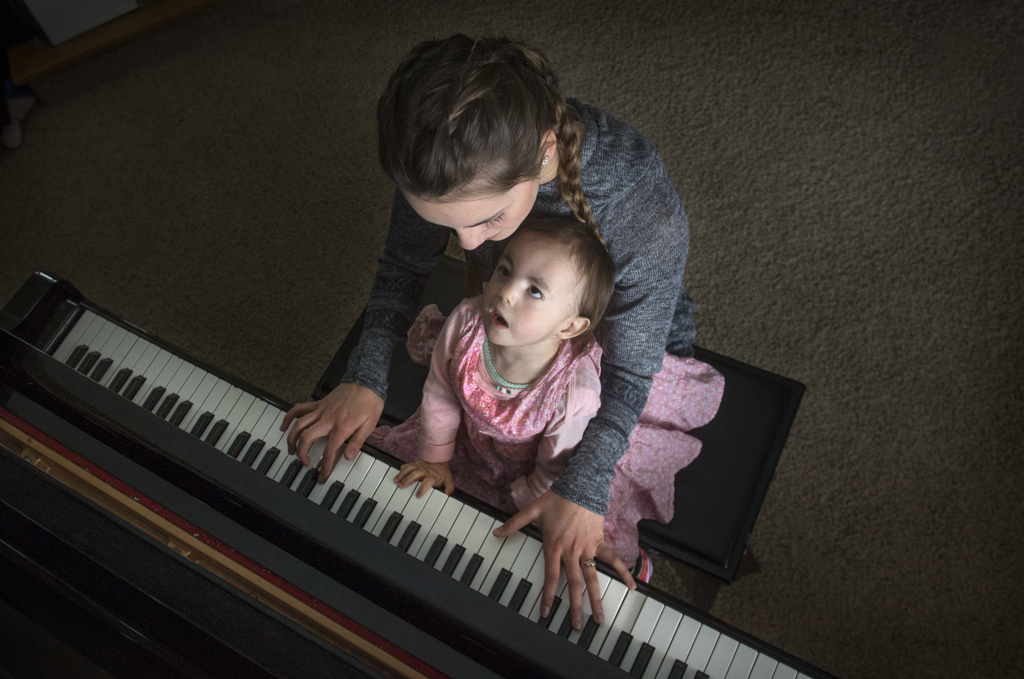
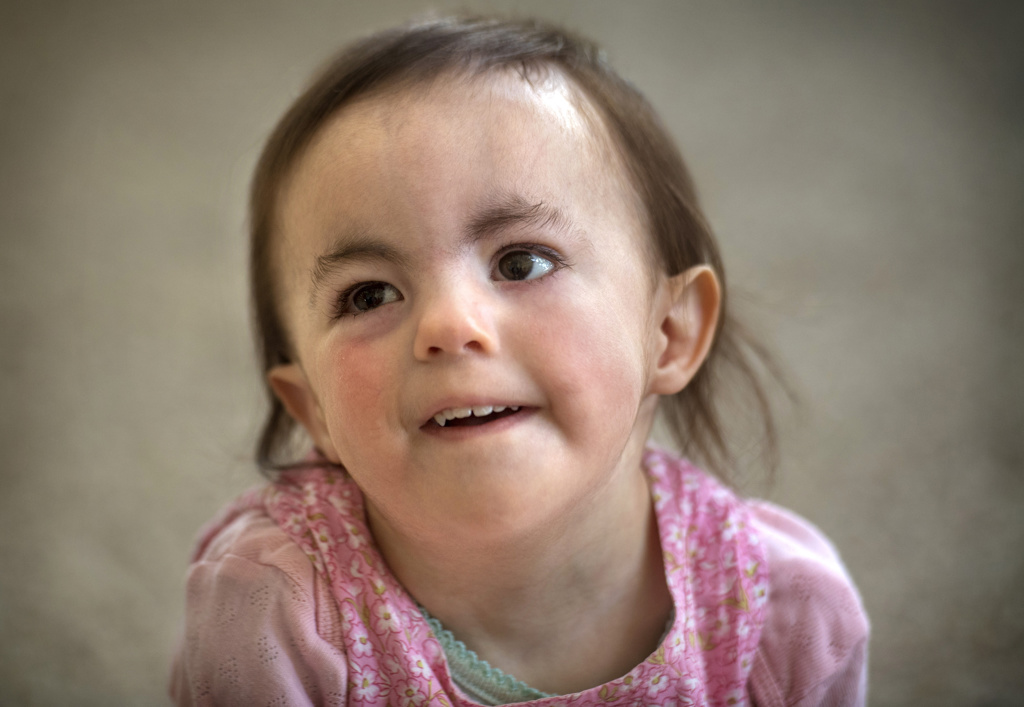
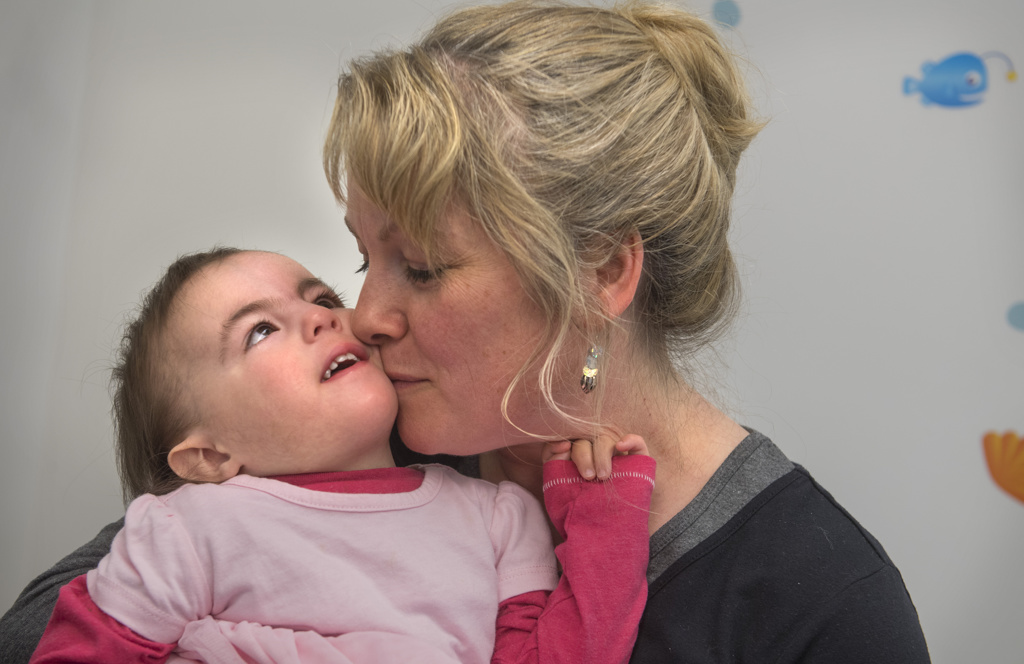
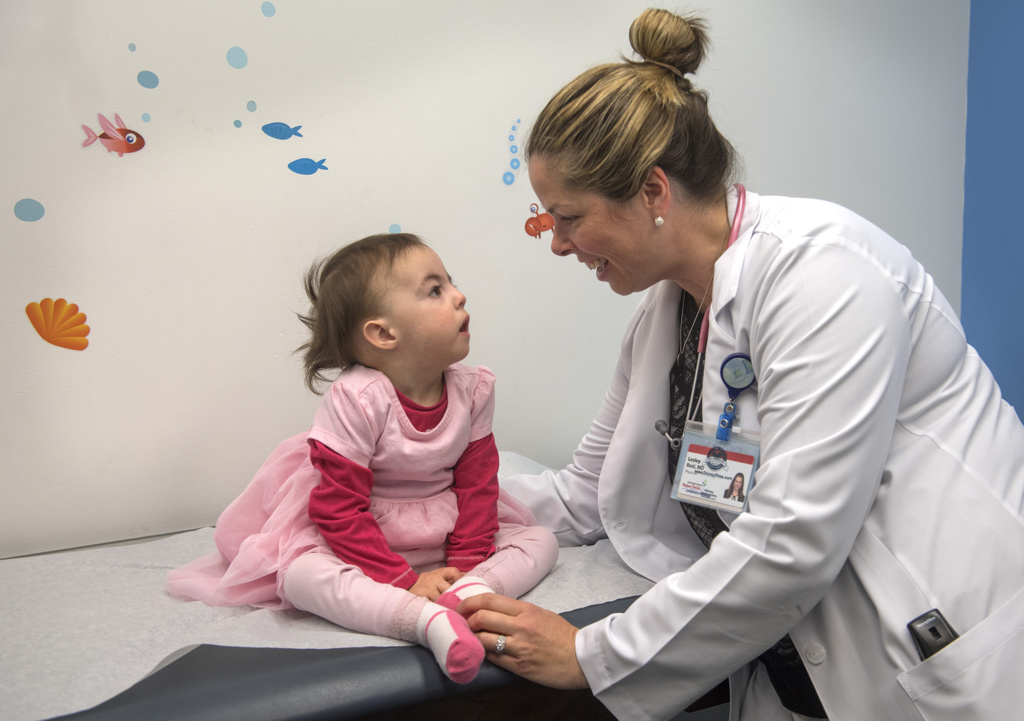
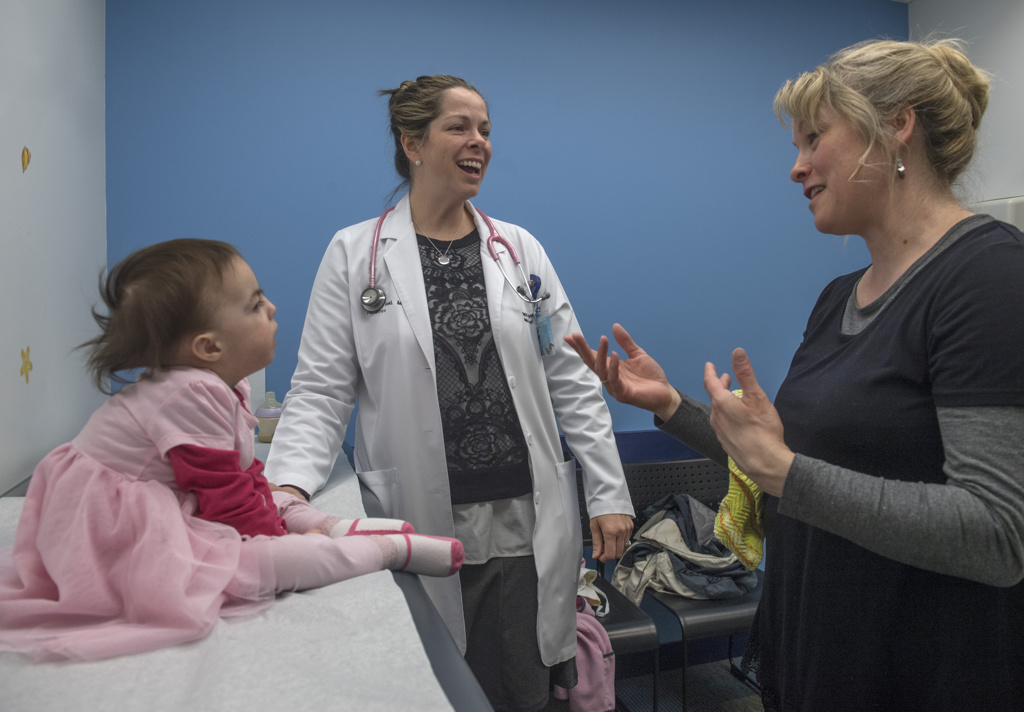
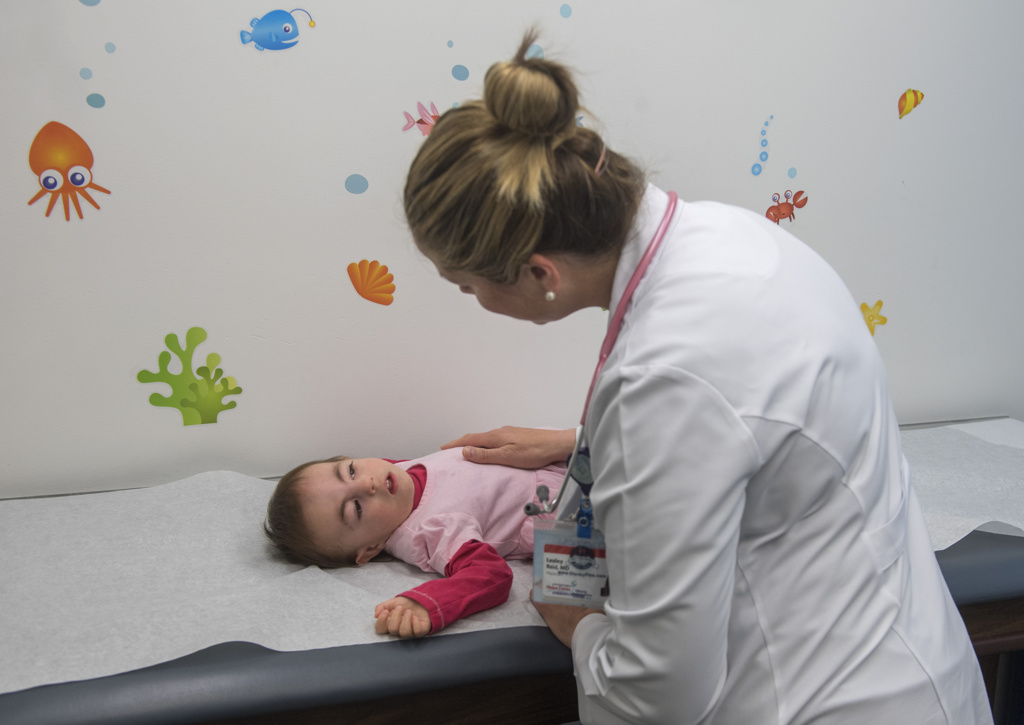
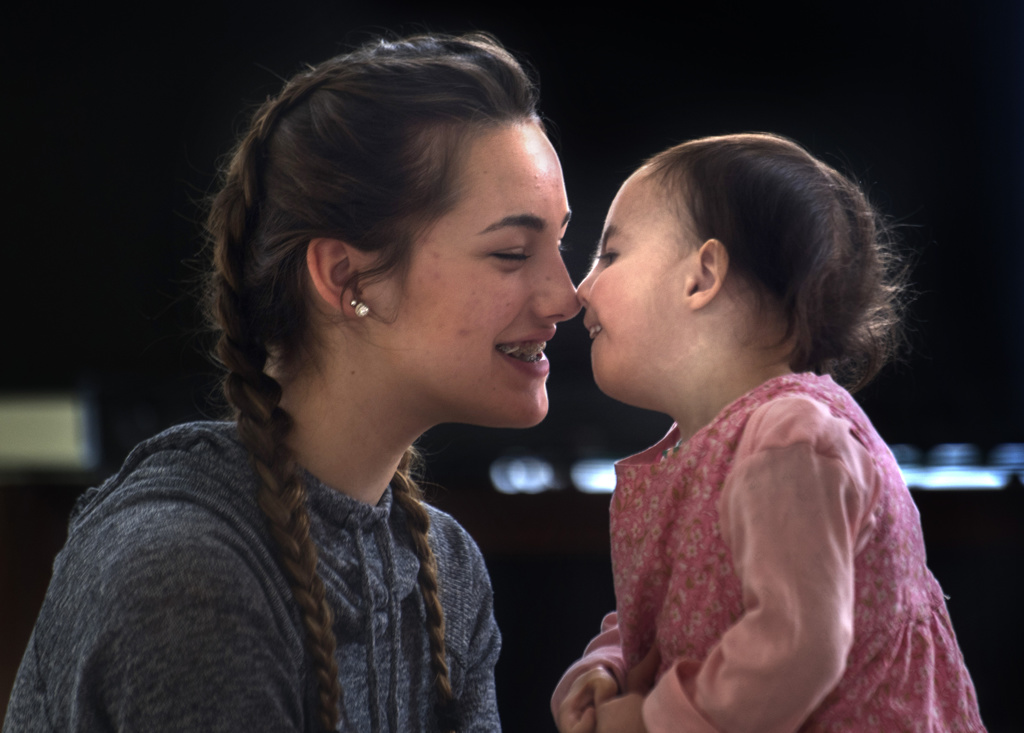
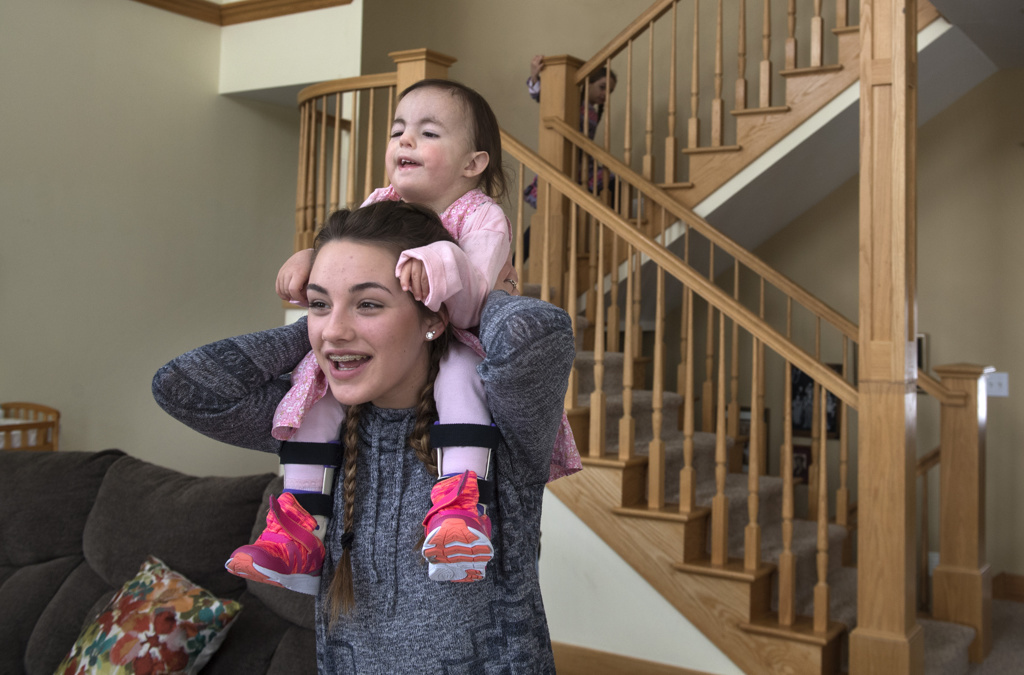

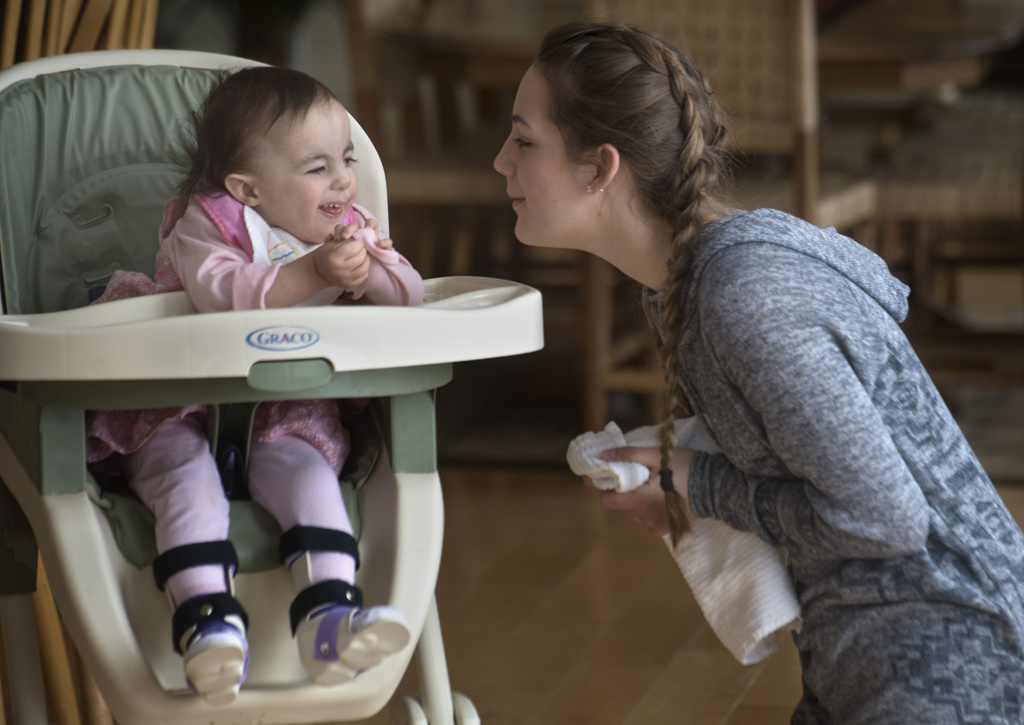
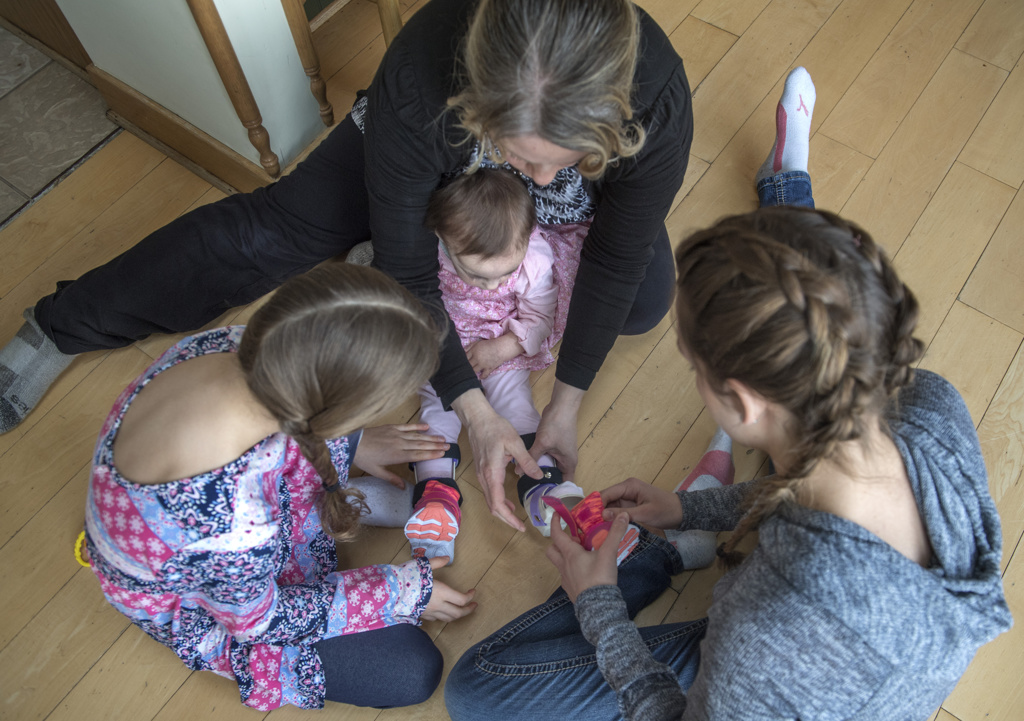
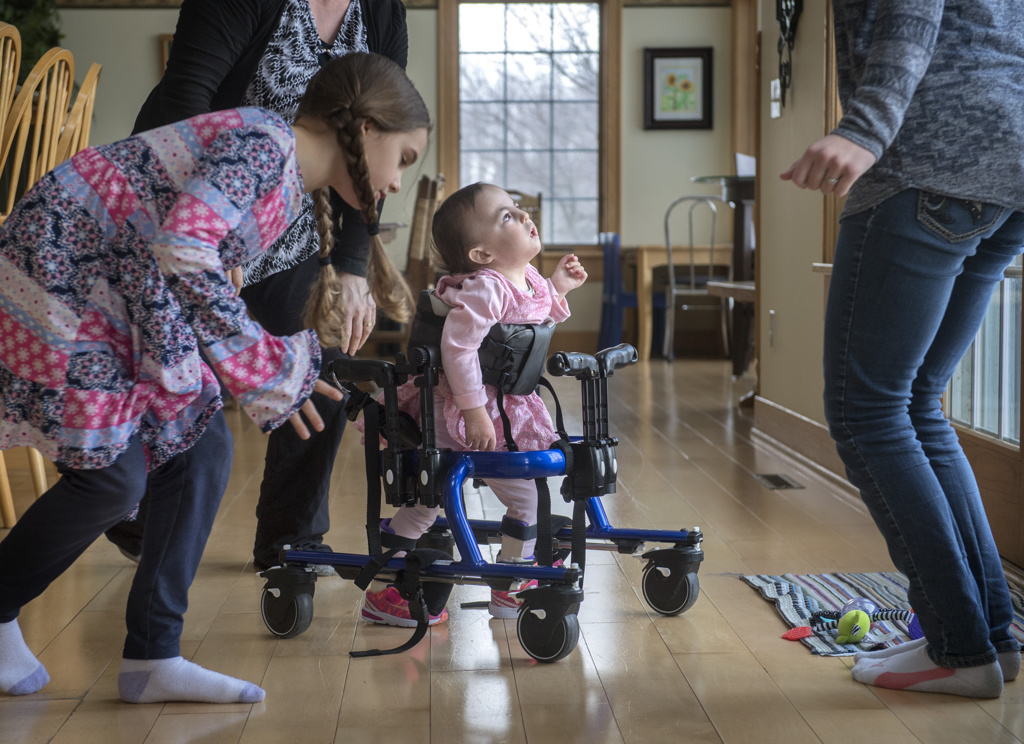
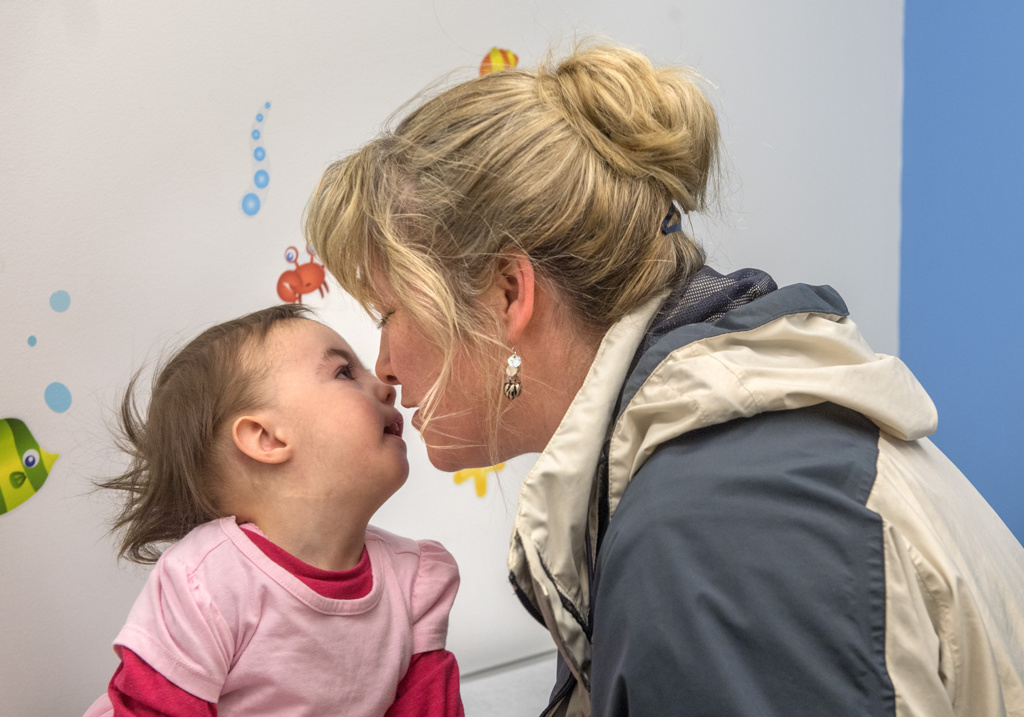
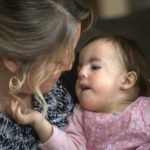


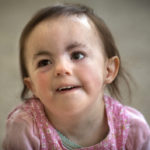
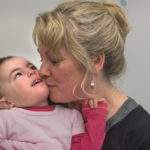










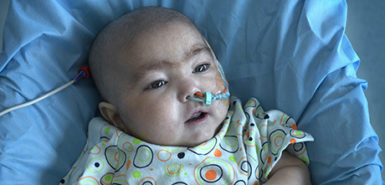 /a>
/a>
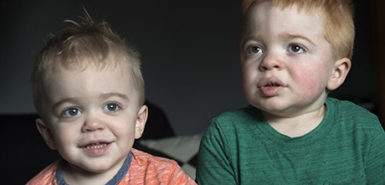 /a>
/a>
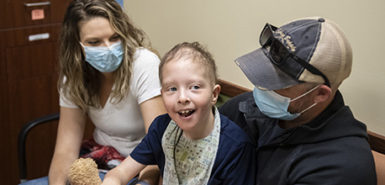 /a>
/a>
As a long time OB RN I have witnessed babies born with Trisomy 18 and the heartbreaking struggle families can go through with this diagnosis.
Reading your story is such an inspiration and demonstrates how family love and the touch of God can make all the difference! Thank you for sharing!
What a beautiful example of the value of each and every life, no matter what their capacity to function independently is – a precious gift!
Precious indeed, Monika! Thank you for your kind comment.
I had a younger sister diagnosed with Trisomy 18 at birth in 1969. My parents were told she would not survive and would never come home from the hospital. She was 16 when she died. I have information from her life that I would be willing to share if anyone is interested. My mom was a nurse and made it her life’s work to create a support system for families with terminal children.
Correction: My sister Katherine Fischer was 17 1/2 when she died.
I had the privilege of being the mother of a Beautiful girl who I named her “Hopie” she had Trisomy 18 and lived for almost 4 years. My daughter was born at Helen DeVos and they took wonderful care of her every hospitalization she had.
I wish I had the opportunity to share more about my daughter’s life journey.
We also had a daughter with Trisomy 18. She was born December 2006. She came home on Hospice and lived for 3 weeks. She was our miracle baby and defied the odds for 3 weeks. We loved her very much and miss her everyday!